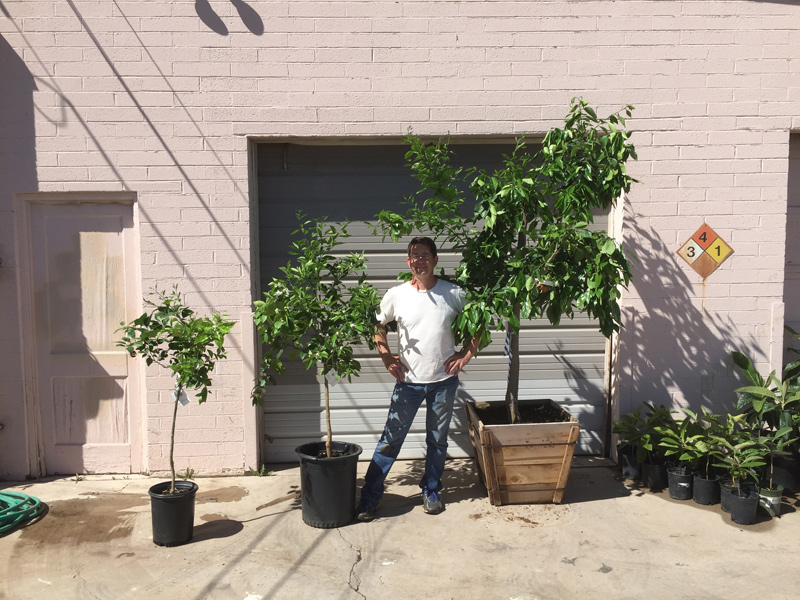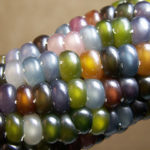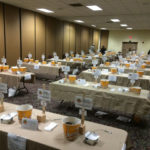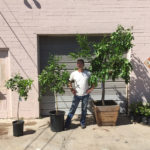A Fruitful Endeavor: The Urban Farm

Writer Shannon Severson
Photos courtesy The Urban Farm
[dropcap]T[/dropcap]he desert seems an unlikely place for a burgeoning small farm movement, but that hasn’t stopped Greg Peterson of the Urban Farm, a Phoenix-based business he founded in 2001 — though he’s been growing food here in the Valley for more than 40 years. The Urban Farm’s purpose is to educate and inspire people to grow their own food and to deliver the knowledge necessary to do that in a widely accessible way.
“It’s actually quite easy to grow vegetables and in Phoenix if you know what the rules are,” says Peterson, “and that’s what I teach. It’s about garden location, the quality of your soil and effective watering.”
Area residents have a prime opportunity to participate in a signature event: the fourth annual Great American Seed Up on September 22 and 23 at the Uptown Farmers Market at North Phoenix Baptist Church. The event is presented by seedsave.org in collaboration with Urban Farm University, the Micro Farm Project, and Grow Phx.
For $50 or less, participants can purchase enough desert-adapted seeds to last them the rest of their lives, says Peterson. Classes on seed storage and seed saving ensure that the seeds can be preserved effectively for decades to come. This year will feature a “Seed Dating” event on Friday night, which allows attendees to bring a friend for free and includes viewing of the thought-provoking documentary, “Seed: The Untold Story,” followed by a Q-and-A session with seed expert Bill McDorman (seedsave.org, Rocky Mountain Seed Alliance), who is featured in the film and co-founded the event with Peterson.
After shopping a seed bazaar overflowing with open-pollinated, non-GMO vegetable, wildflower, flower and herb seed varieties at deep discounts (at just $1.25, one scoop of basil seeds represents more than 10 packets of purchased seeds), gardeners can attend workshops and presentations with seed experts like McDorman. Kari Spencer of the Micro Farm Project will be offered on Saturday, as well.
The Urban Farm events aren’t confined to fall. Now in its 17th year, its annual Fruit Tree Program features a pop-up nursery with deciduous, citrus and tropical fruit trees. To date, the Urban Farm contributed to the planting of more than 15,000 fruit trees around the Valley.
Peterson’s passion for gardening began in 1975, when his mother encouraged him to plant a garden and start growing their own food. When he purchased his first home in 1989 and moved beyond basic gardening, he discovered the concept of permaculture, a whole-system, creative design process for developing sustainable and self-sufficient agricultural ecosystems with zero waste. His 1/3-acre property soon became a completely edible landscape.
While growing food in the desert might raise the eyebrows of conservationists, Peterson points out that the environmental impact of shipping produce from around the world or even other states must be balanced with effective growing techniques and the impact on our health.
For the past 15 years, Peterson has offered classes, both in-person and online, helping home gardeners grow their own food in spaces small and large. His website offers free resources, as well as a podcast, blog, newsletter and free and fee-based courses of study. The Urban Farm’s programs have drawn attention and accolades from around the country. More than ever before, people want access to nutritious food of local, discernible origin, raised without chemicals, and they want to do it affordably, positively impacting their families and the environment.
“The amount of people jumping on board in just the past three or four years has been growing exponentially,” says Peterson. “The attendance at my lectures and twice-yearly tours of the Urban Farm have gone from a handful of people to hundreds. Next year, we will be expanding to engage other urban farmers around town to offer tours of their property.”




